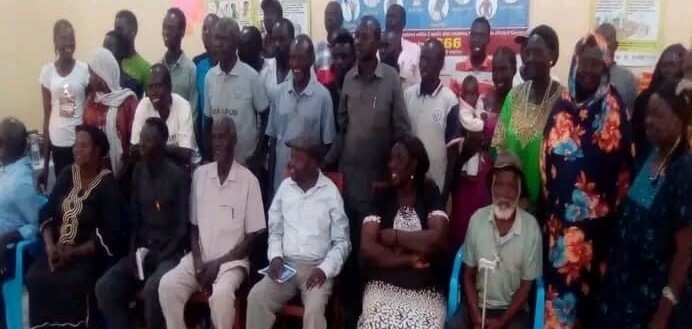At least 45 community leaders from Torit Municipal Council in Eastern Equatoria state were trained on Ebola prevention in Torit on Thursday.
The training workshop, which lasted for one day, was organized by the state ministry of health in partnership with the United Nations children’s agency (UNICEF). It aimed at creating awareness among the communities on prevention measures and the dangers of the Ebola disease.
The community leaders were drawn from Torit Municipal Council, as they will be expected to extend the knowledge to the grassroots.
Although South Sudan has recorded no case of Ebola, health authorities have heightened surveillance at the borders to prevent the disease from entering the country.
Oler Charles, the communication officer at the state ministry of health, said the training is to create awareness among the communities to take preventive measures against Ebola.
“The reason why we called you here is that we know very well that you are closer to your communities on the ground there. Some of us may not know who are in the villages, but it is you who know them and the message you are taking from here, we are sure that it will reach,” he said.
Meanwhile, Oriaja James, the deputy chairperson for the Eastern Equatoria state youth union, said the skills acquired will help create awareness among the communities about the Ebola disease.
“We don’t know at when this disease will come to us, and it might happen at any time. Good enough, we have already been given the tools to fight it when we go from here,” he said.
Philemon Lopiata, the deputy mayor for administration at Torit Municipal Council, urges the health partners to introduce protocols for Ebola disease in the State.
According to Lopiata, people in the State are not following Ebola preventive measures like coronavirus.
Ebola is a rare but deadly virus that causes fever, body aches, diarrhoea, and sometimes bleeding inside and outside the body.
The virus is transmitted to people from wild animals and spreads in the human population through human-to-human transmission.




